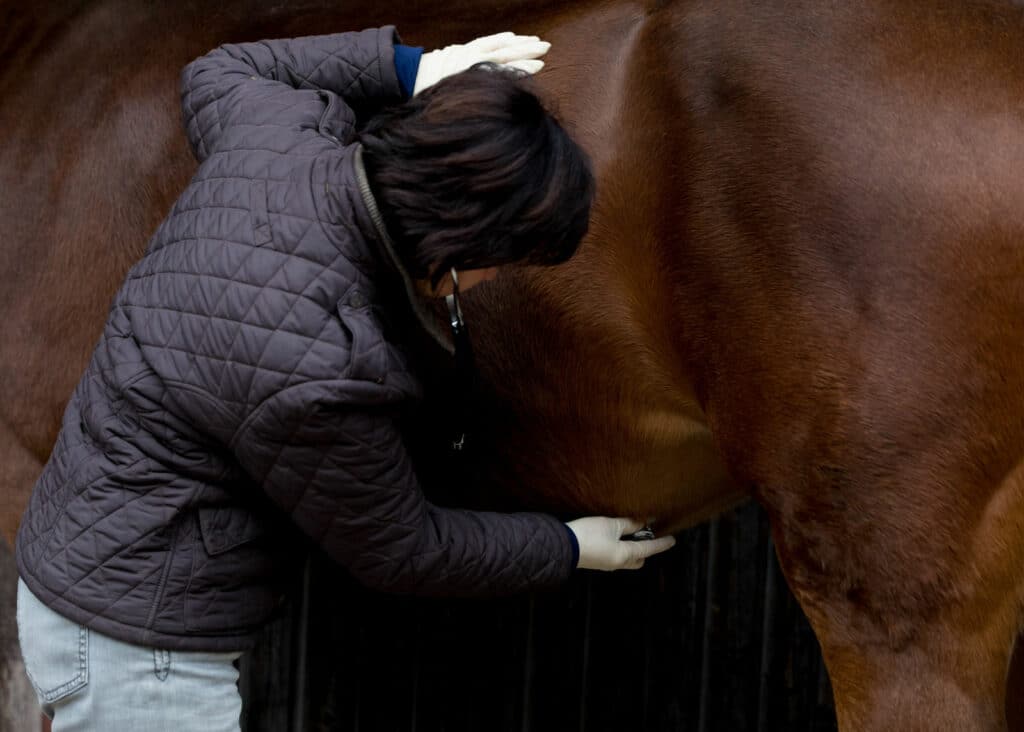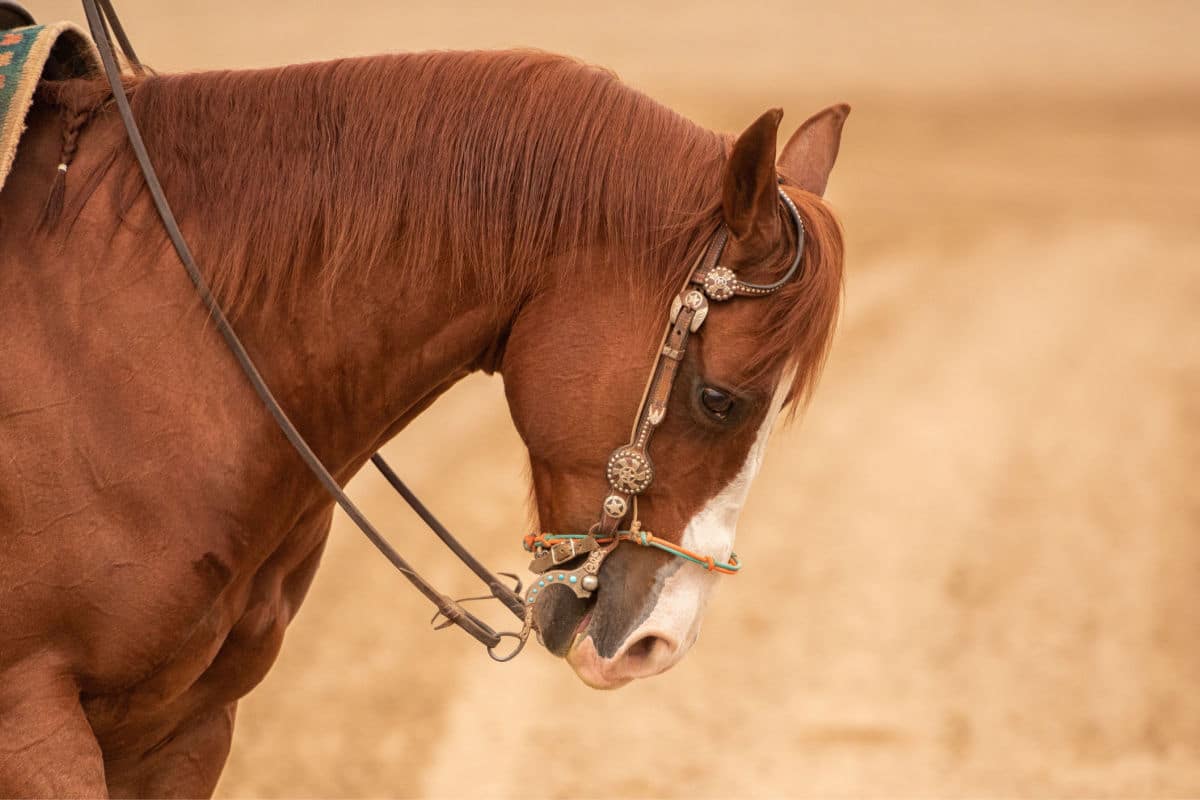This is Part 2 of Parasites and the Equine Gut, a new series investigating the connection between parasite control and your horse’s digestive health — and what we can do to help.
In the first post in this series, we discussed why worms are still so common in horses, despite regular deworming programs. In Pt. 2, Parasites and Nutritional Difficulties in Horses, we’ll be getting more in depth about why that’s a problem for your horse — and especially for his digestive system.
The Impact Parasites Have on Nutrition
There are more than 150 types of parasites that affect horses, but the four most common types are strongyles, ascarids, tapeworms and bots. All horses are infected by one or more parasites, so it’s up to us to control their numbers.
Parasites are often behind common equine maladies, from small symptoms like a horse rubbing its tail or losing its shiny coat, to weight loss, diarrhea, colic, and even death. While different types of parasites have different effects on your horse (see below), all kinds of worms cause our horses’ digestive systems to work overtime to compensate for the inflammation and blockages caused by these parasites. Here are several common problems:
- Hindgut inflammation: parasite infection in the hindgut can cause inflammation, which has negative effects on digestive health and function.
- Colonic ulcers — or lesions that occur in the hindgut (and specifically the colon) of a horses — have also been linked to parasites.
- Gastric ulcers are lesions occurring in the lining of a horse’s stomach. No one knows exactly what induces equine gastric syndrome, but we do know that ulcers occur when the mucosal lining of the stomach is compromised — potentially by parasites.
All three of the above challenges, which worms can cause, have an impact on your horse’s ability to absorb nutrients. That means that your horse isn’t getting the full value of his feed and can, as a result, have reduced energy levels, reduced stamina and speed, trouble recovering quickly from exercise, and difficulty maintaining weight.
Signs of Parasite Infection in Horses that May Compromise Nutrition
Not all types of parasitic infections are easy to diagnose. But here are some signs to look for:
- Weakness, weight loss, diarrhea, anemia, and colic may be symptomatic of large strongyles
- Malnutrition, weight loss, and diarrhea can be indicative of small strongyles
- Weight loss, poor condition, anemia, and colic can be caused by tape worms
- Inflammation and ulceration of the stomach are effects of bots.
These are clear signs that a problem is brewing in your horse’s gut – and warrant a call to the vet. Your veterinarian will be able to use diagnostic tools such as fecal testing or endoscopy to determine if parasites – or something else- is the problem.
Parasites May be the Problem
Although some of the above symptoms may not be visible to the naked eye (or could be attributed to other factors in the horse’s environment), be sure to consider parasites if your horse is experiencing any of the above symptoms. Testing for and treating parasites is a good place to start when you have a horse who seems nutritionally compromised or just a little “off.”
All of the parasites mentioned above take a significant toll on your horse’s digestive system. While the damage caused may either be direct (such as inflammation, ulcers or the death of the tissue lining the gut) or indirect (colic, anemia, or nutritional deficiencies as a result of internal damage), parasites affect all horses — so it’s up to us to create an appropriate parasite-management plan.
Up Next: Parasites and Anemia
Subscribe to the SUCCEED blog to follow along as we continue to dig deeper into identifying and controlling parasites in our horses. The next article in this series on Parasites and the Equine Gut examines the relationship between anemia and parasites. Anemia in horses is defined as a reduction in red blood cells, which are critical to your horse’s ability to perform at its best. Follow along as we discuss how parasites affect red blood cells, and how we can avoid the dangers associated with anemia.
Flickr Photo Credit: Jodi Bratch (used via Creative Commons)



